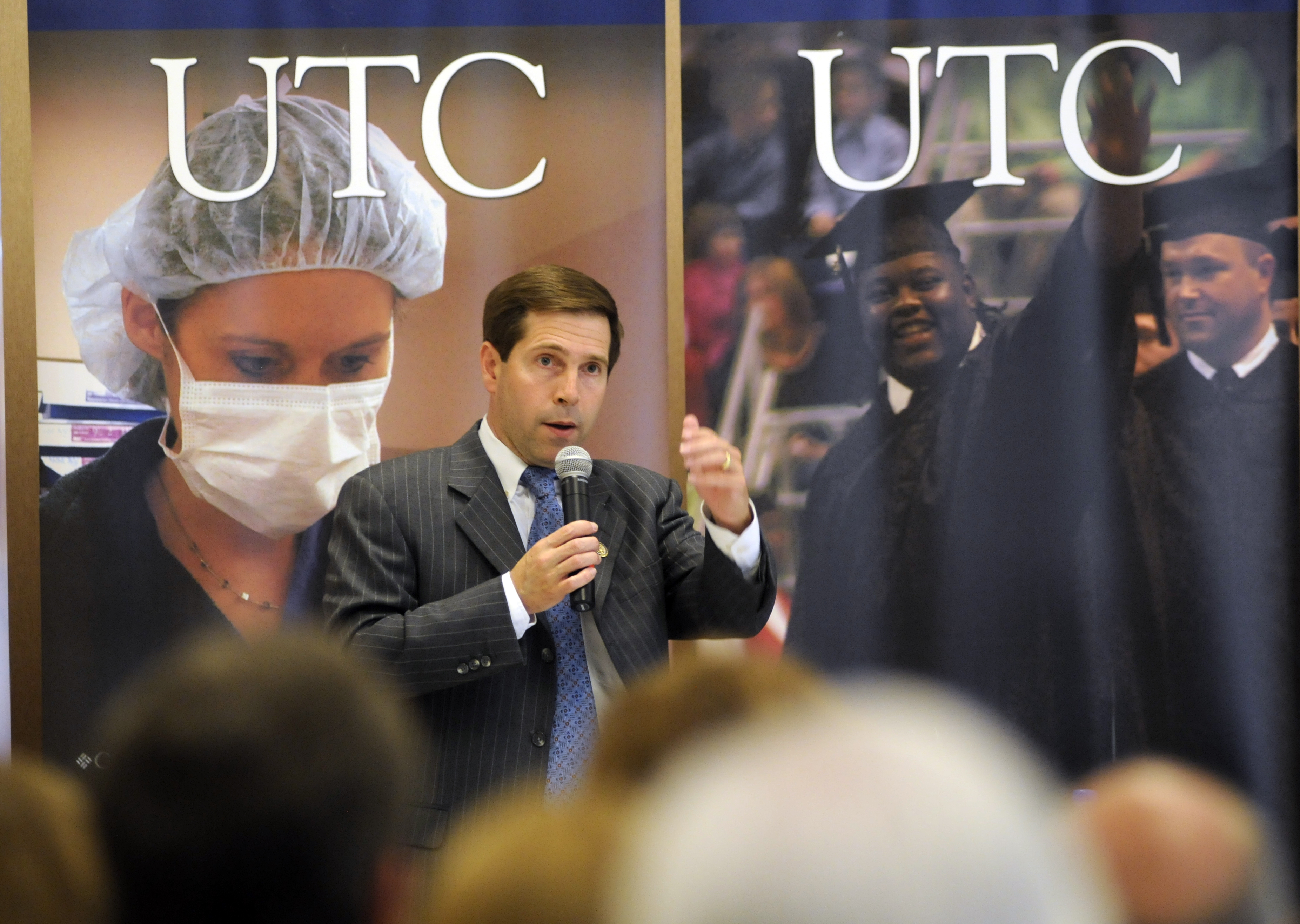Chattanooga was the first stop Tuesday for a congressional panel exploring small business challenges this spring.
"When [U.S. Rep.] Chuck [Fleischmann] first came to Congress, he grabbed me and said, you've got to come to Chattanooga," said U.S. Rep. Sam Graves, R-Mo., chairman of the House Small Business Committee.
Chattanooga has created more than 12,000 jobs and brought in 85 new companies since 2003, and Fleischmann told attendees he wanted to use lessons learned from "the greatest midsized city in the world" to fix the stalled U.S. economy.
Panelists invited by the congressmen said overregulation and overtaxation are hurting their businesses and communities, especially in the areas of health care, finance, taxes and energy.
Hicks Armor, executive vice president for the First Horizon Insurance Group, said that given the choice between paying a $2,000 penalty or buying $8,000 health insurance for each employee, most small businesses would be forced to put employees on the government dole as the national health plan takes effect.
Last year, he said, businesses saw their health insurance premiums jump as a result of new health care rules, and many have been quick to blame insurers for the increased cost, he said.
But Lynda Johnson, director of the Office of Health Care Reform at BlueCross BlueShield, said that insurance profits were only a small part of the problem.
"We do think it makes sense for small businesses to drop coverage," Johnson said. "Employees will have a much harder time keeping (private) coverage in 2014," when the new health care reform plan goes into full effect.
Both Graves and Fleisch-mann support the elimination of the new health care law and prefer to provide health care through market-based alternatives instead, though they were short on specifics regarding what those alternatives could be.
Regulations and taxes
Eleanor Yoakum, chairwoman of Tazewell, Tenn.-based First Century Bank, said she felt "crushed, to tell you the truth," by laws that require her to hire employees to enforce banking secrecy laws for the government, but prevent her from making loans to the people who need them.
Her community bank used to "literally be their partner in their business, but those days are over."
"Banks get blamed for hoarding money and not lending it, but we can't until some of these regulations get off our back," Yoakum said.
That's bad news for John Taylor, owner of Taylor Funeral Home, who said businesses like his are having a hard time getting a loan, even after 20 years doing business in Chattanooga, he said.
"We know we need regulation, but we need to make the way we're doing it smarter," he said. "A lot of times we look at the credit score instead of the character of the business."
The IRS also came under fire from Kevin Cardwell, comptroller at Southern Champion Tray.
Cardwell said that just getting a clerical error fixed takes months, and confusion resulting from forthcoming taxes has resulted in a stalemate where businesses hold off on hiring and expansion because of uncertainty.
Howard Hornsby, a dairy farmer from Meigs County, was concerned with the unintended consequences of federal policies promoting ethanol, which makes his operation less profitable.
Unlike corn, "milk and beef can't be used as a substitute for petroleum," he said.
As the panelists talked, Fleischmann took notes.
"Entrepreneurs know better than government bureaucrats," the Republican said later. "We do not want to overregulate and overtax small business."
Graves said that the next law he would try to stop was an EPA plan to regulate dust, which he said was the latest in a series of rules passed after President Barack Obama's executive order not to enact regulations that hurt small businesses.
"He doesn't hold to that pledge," Graves said. "Obama turns on his right hand signal, then goes left."

